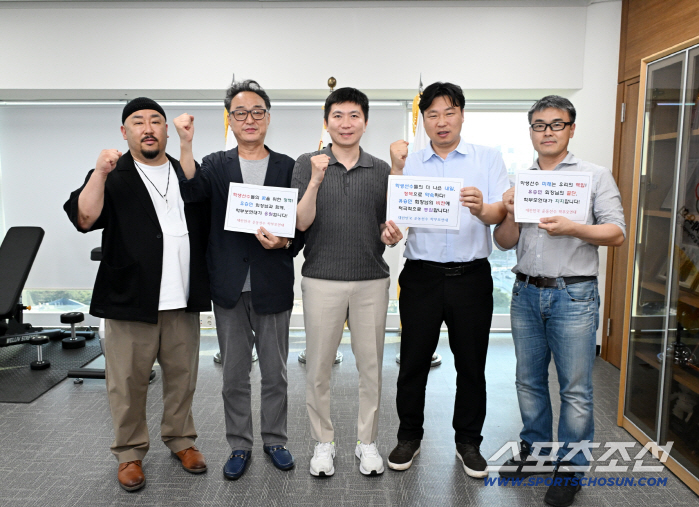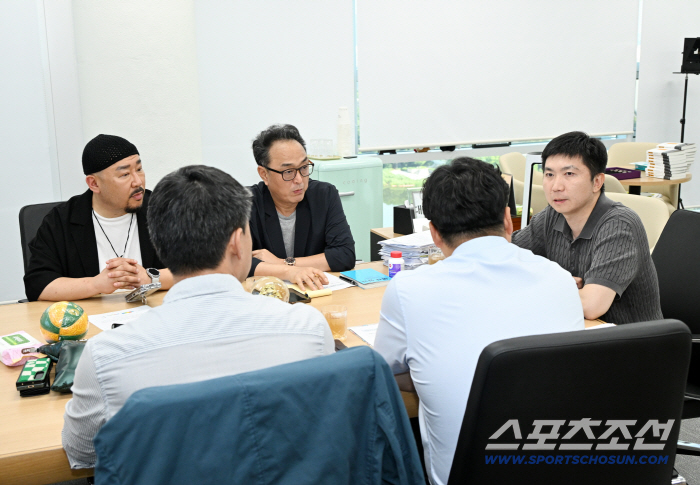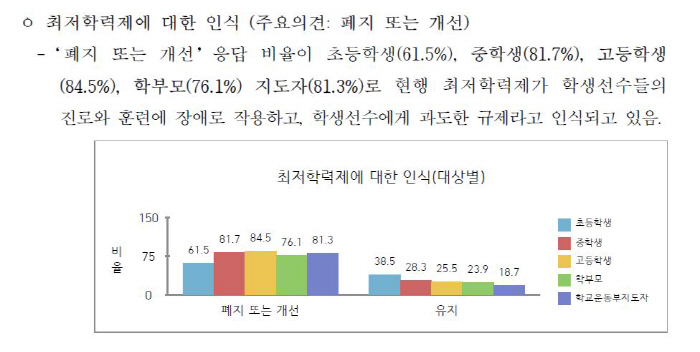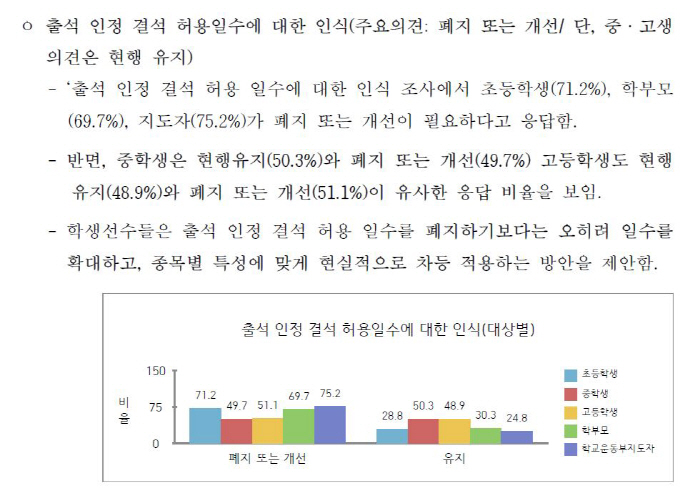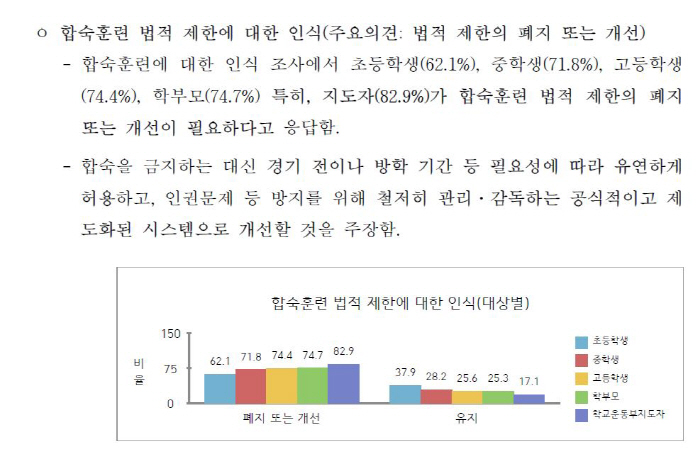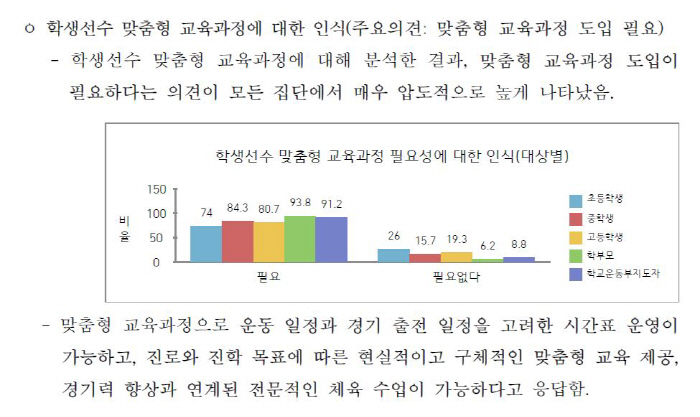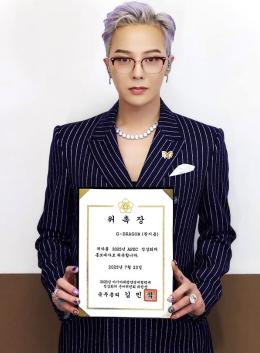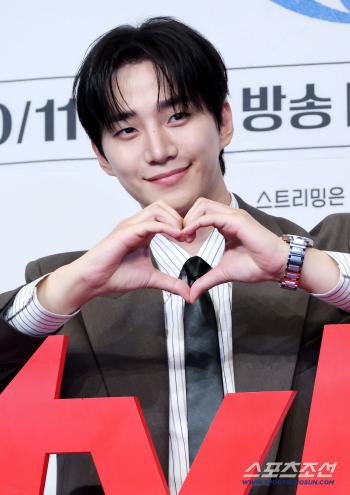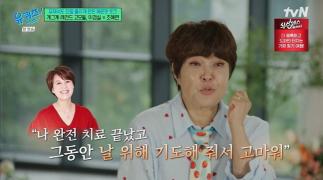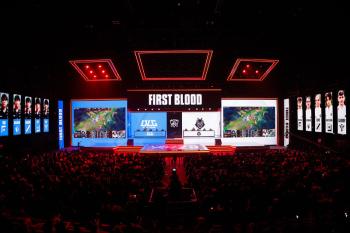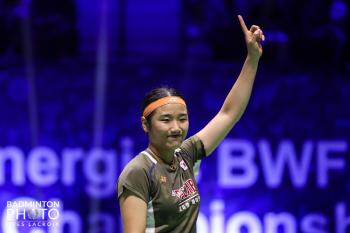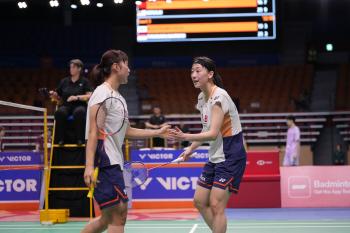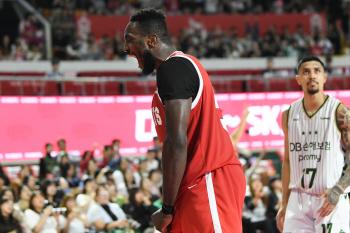The Korea Sports Association held a meeting with the parents' association of Korean athletes and shared the results of an on-site survey on how to support student athletes.
In the afternoon of the 25th, parents of athletes attended the meeting at the Korean Olympic Committee's conference room in Songpa-gu, Seoul, delivering on-site opinions on various topics such as student athletes' training environment and customized curriculum, and held in-depth discussions on practical ways to improve the system.
Chairman of the Korea Sports Council Yoo Seung Min, who is also a parent of two aspiring soccer players, said "If the current system and perception continue, professional sports could collapse within 5 to 10 years."He emphasized the need for institutional transformation to correct negative perceptions of the school sports department and guarantee student-athletes' right to train. In particular, regarding the minimum academic background system, it is institutional reverse discrimination that only athletes are subject to separate standards of learning standards, and "We need to improve the structure of student athletes relying on private education or losing opportunities due to lack of training time."," he stressed. "President Yoo Seung Min's policy is not just an administration on a desk, but a practical policy that can only be implemented by athletes who know the weight of sweat and experience in international sports diplomacy," said Kim Chang-woo, head of the Parents' Association. "The complete abolition of the minimum education system, the abolition of the limit on the number of days recognized for attendance, the revival of new concept camps, and the normalization of the National Youth Sports Festival are direct and effective answers to the voices of students, parents, and leaders who have been neglected."
The meeting also shared and discussed the results of the 'Student Player Support Plan Survey' (conducted by the Gyeonggi University Industry-Academic Cooperation Group, a total of 4,192 responses) conducted at the youth sports field for a month from May 24 to June 25. Many elementary, middle, and high school student athletes, parents, and leaders who participated in the survey responded that the minimum education system needs to be abolished or improved. 61.5% of elementary school students, 81.7% of middle school students, 84.5% of high school students, and 76.1% and 81.3% of parents and leaders, respectively, said they needed improvement.Improvement measures such as easing grade standards, diversifying subjects, and evaluation methods considering school-specific situations were proposed, and the need for supplementary classes and individual customized classes to support learning was also mentioned.
Interesting results have been made about the number of days the attendance recognition is allowed to be absent. In 2023, after the Ministry of Culture, Sports and Tourism and the Ministry of Education expanded the number of days allowed for student-athletes to participate in competitions and training from 5 days to 20 days in elementary school, 12 days to 35 days in middle school, and 25 days to 50 days in high school, the policy seems to have entered the settlement stage at the site. Elementary school students (71.2%), parents (69.7%), and leadership groups (75.2%) responded that there was a need for improvement, and middle and high school students showed a half-and-half opinion on the current maintenance (50.3%-48.9%) and the need for improvement (49.7%-51.1%). Rather than abolishing the number of days allowed to attend, it was also proposed to flexibly apply the number of days allowed to be absent in consideration of the characteristics of the event and the schedule of the competition.
Regarding the legal restrictions on training camp, there were many opinions that 'abolition or improvement is needed'. 62.1% of elementary school students, 71.8% of middle school students, 74.4% of high school students, 74.7% of parents, and 82.9% of leaders said the current regulations should be adjusted. Some respondents argued that rather than banning camp altogether, it is necessary to flexibly allow camp only just before games or during vacations, and to introduce a systematic management and supervision system for human rights protection and safety management.
In particular, the majority of respondents agreed on the need to introduce a curriculum tailored to student players. 74.0% of elementary school students, 84.3% of middle school students, 80.7% of high school students, 93.8% of parents, and 91.2% of leaders responded 'necessary'. Respondents emphasized the need for flexible timetable operation considering exercise schedules and participation schedules, specific customized education according to career goals, and professional physical education classes related to improving performance.
On the other hand, the Korea Sports Association said, "Based on the voices of the field and the results of the survey confirmed through this meeting, we will continue our policy efforts to create conditions for student-athletes to study and exercise at the same time. We will take the lead in improving the system and changing social awareness through continuous communication and consultation with parents, leaders, and educational authorities."
This article was translated by Naver AI translator.
